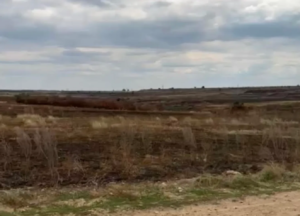The legacy of anti-Black racism in tribal nations can be a fraught, uncomfortable topic, one that forces communities who have suffered centuries of land theft, colonialism and genocide to confront the darker corners of their own past. Several tribal officials declined interview requests to discuss the issue.
“When we have that difficult history to deal with, we don’t talk about it,” said Chief Chuck Hoskin Jr. of the Cherokee Nation. About 7,000 descendants of Freedmen were incorporated into the Cherokee Nation after a federal judge ruled in 2017 that they had tribal citizenship rights. That history is “a stain on the Cherokee Nation we’ve got to remove,” the chief said.- Advertisement –
Spanish and English colonizers enslaved Native people across the Americas. But tribes in Alabama, Georgia and Florida also adopted the practice themselves, enslaving African-Americans to work on cotton plantations and in homes. When the United States government forcibly removed the Cherokee, Seminole, Choctaw, Chickasaw and Muscogee people to Oklahoma, their slaves also made the deadly march or were transported west in boats, according to historians.
The Civil War and the question of slavery divided tribes, with some fighting for the Union and other tribal members declaring loyalty to the Confederacy. Some enslavers retreated to Arkansas or Texas to escape skirmishes and raids. Black Indians joined the Union or Confederate armies, and later escaped to freedom in Kansas.
“It’s a history that still divides our citizens over what rights the descendants of those Freedmen should have, as well as the larger conversation concerning who is ‘legitimately’ Cherokee,” Rebecca Nagle, a Cherokee writer and host of the podcast “This Land,” wrote this summer after the Cherokee Nation removed two Confederate war memorials in eastern Oklahoma. “We need to do more to confront that history within our tribe.”- Advertisement –
The Freedmen were granted tribal citizenship — and in some cases “an equal interest in the soil and national funds” of the tribe — in the treaties that Oklahoma’s tribes signed with the federal government after the Civil War, in which the tribes were forced to cede huge portions of their land to the government.
On the Muscogee (Creek) Nation, there were once three “colored” tribal towns that formed their own small governments. Despite segregation and racist legal structures, Freedmen served as council members, ministers, judges. Jesse Franklin, who was born a slave in Alabama in 1817, was named to the Creek Supreme Court in 1874 — some 93 years before Thurgood Marshall ascended to the United States Supreme Court.




